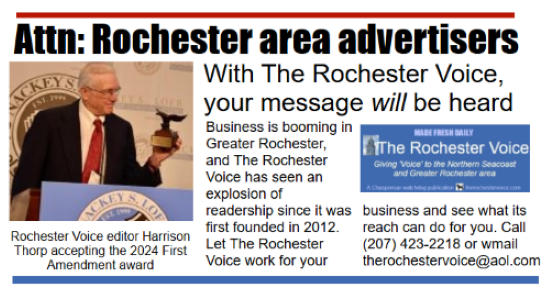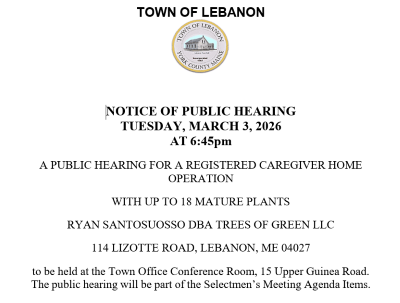North Berwick Fire Chief Brian Gosselin finds himself on the horns of a dilemma most anytime a fire call comes in during the week.
"We have about 25 people on our roster, but right now it's probably three guys who answer the calls," he said earlier this week.
Gosselin runs a department made up off call firefighters like Lebanon. That means firefighters get paid when they respond to a call. But during the week, when most of them are working out of town it's hard to muster a crew, he said.
On Tuesday Lebanon voters will decide whether they want to change the way Lebanon Fire and Lebanon Rescue currently operate as call departments to departments that rely heavily on stipended responders much of the time.
Two referendum questions ask residents to fund two 14-hour-a-day shifts seven days a week for Rescue and Fire apiece at a cost of about $200,000 overall. The staffing would also include funding four on-call positions - two for each department - when the per diem staff go home.
While Gosselin's department still uses the volunteer firefighter model, he said he's already made a proposal to the North Berwick town manager that per diem staff be added. He thinks it won't be long until his stationhouse will be staffed the way it has been proposed in Lebanon.
"It's going to happen," Gosselin said. "With more people working out of town, it's harder to get people out on the road."
He said he has less of a problem mustering a fire crew on weekends when firefighters are off from their regular jobs and around town.
Gosselin added that his plan calls for per diem firefighters to be cross-trained as EMTs so they can help North Berwick Rescue, adding "Cross-training is key."
Meanwhile, North Berwick Rescue on July 1 will double its per diem presence at its stationhouse.
Beginning then two people will staff North Berwick Rescue day and night from Sunday night through a Friday day shift. From Friday night through a Sunday day shift one EMT or paramedic will be on hand.
 |
| North Berwick Assistant Rescue Chief Nick Pelletier |
North Berwick Assistant Rescue Chief Nick Pelletier said when the two-person shift is in effect it will be his intention to have one slot filled at the paramedic level. Like Gosselin he said that weekends are less problematic as more volunteers are around town.
Pelletier said the town pays the average EMT per diem $11.66 an hour and that paramedics, get about $15.
Pelletier said the department has been slowly beefing up its per diem presence at the stationhouse over the past five years so that the rise for taxpayers has been incremental over that period.
On Tuesday Lebanon residents will decide if they want to combine the town's fire and rescue operations as has been done in Milton, where two firefighter/EMTs staff the stationhouse from 6 a.m. to 6 p.m. seven days a week.
The staffing comprises two full-time members who work opposite shifts consisting of three consecutive 12 hour days followed by 3 days off. The general operating budget of the department funds these two positions, said Milton Fire and Rescue Chief Nick Marique.
The full-time firefighter/EMT is partnered with a per-diem member of the department who also must be a certified firefighter and EMT. There are approximately 16 cross-trained members of the department that fill these shifts, Marique said, and the funding for the per-diem shifts comes from the ambulance revolving account which accrues money from ambulance transports.
At night the department has two EMTs signed up to cover the ambulance from 6 p.m. to 6 a.m. The members are paid $4 per hour to be on call; if they get called out they receive their hourly pay in addition to the $4 per hour. The department has $26,000 budgeted in the general operating budget for this purpose, although the true cost is closer to $35,000, according to Marique.
 |
| Milton Fire and Rescue Chief Nick Marique |
A look at Milton Fire and Rescue's call log for 2014 shows that about 60 percent of the calls are medical/Rescue related, while about 8 percent are fire related. Marique explained, however, that firefighter apparatus is often used in some medical calls such as a serious car accident, while Rescue could easily be involved in a fire call as well.
Former Lebanon Fire Chief Skip Wood saw the writing on the wall. Wood, who served the department for 50 years and was chief for 15, told The Lebanon Voice in January that paid per diem firefighters were getting close and there was no stopping it.
"They're going to have to start paying and making it worthwhile for the volunteers for what they want them to do," he said. "I mean you're going to get some volunteers, but you're not going to get the coverage that you used to get. I mean it used to be that if you had a call, you'd go. It didn't matter if they had to go to work at 5 in the morning; if there was a fire they were going to go. Then they'd leave the fire and go to work. They don't do that anymore."
It's all about public safety, said Pelletier, who noted that North Berwick voters overwhelmingly approved their increase in April.
"Public safety is one of those things people don't mind paying for," he said.














